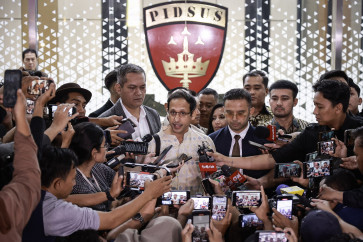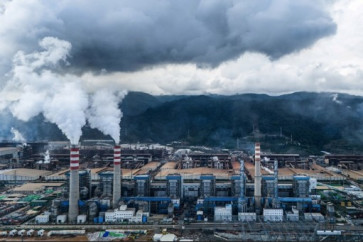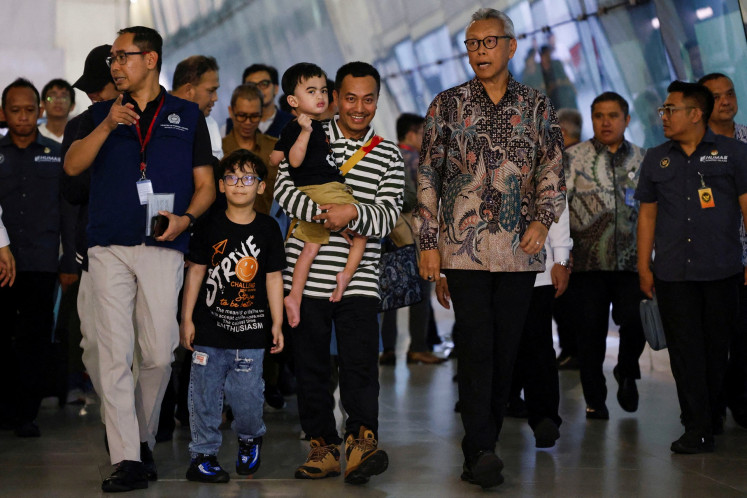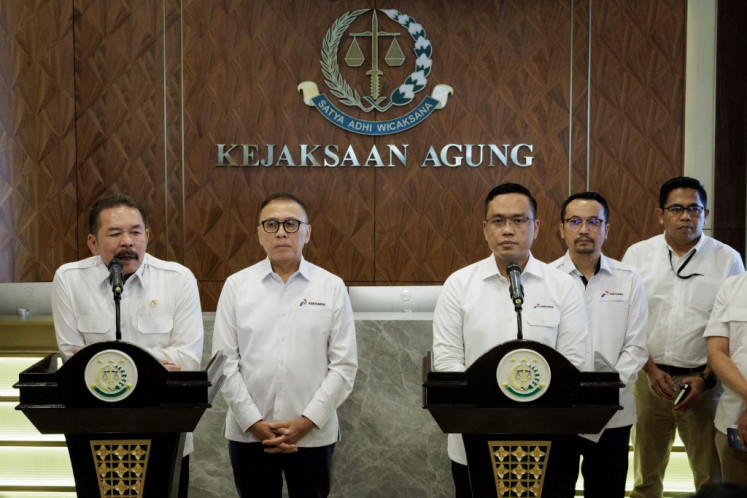Popular Reads
Top Results
Can't find what you're looking for?
View all search resultsPopular Reads
Top Results
Can't find what you're looking for?
View all search resultsGovt to increase grip on industrial estates
The government is planning to increase its grip on the countryâs industrial estates by setting up a special unit under the Industry Ministry tasked with operating the industrial zones, a senior official said
Change text size
Gift Premium Articles
to Anyone

T
he government is planning to increase its grip on the country's industrial estates by setting up a special unit under the Industry Ministry tasked with operating the industrial zones, a senior official said.
In the first phase, the unit will be responsible for operating the government-initiated industrial zones. Later, it will be tasked to acquire several private-run industrial estates on the condition that it has enough money for the takeover.
'Industrial zones are principally infrastructure, which has become the government's responsibility,' said Imam Haryono, the director general for industrial-estate development at the Industry Ministry.
Currently, only around 6 percent of the total 36,295 hectares of industrial zones in the country are managed by the government through state-owned enterprises or local administrations, with the
remainder operated by private conglomerates.
Among existing industrial zones managed by state enterprises are Medan Industrial Estate in North Sumatra and Wijayakusuma Industrial Estate in Central Java. The government is struggling to lure investors to expand both industrial zones.
Meanwhile, the Karawang International Industrial City (KIIC) and MM2100 industrial town ' both in West Java ' are operated by joint ventures of Sinarmas Land-Japan's Itochu Corporation and Japanese Marubeni Corporation-Manunggal Group, respectively.
Both industrial estates were awarded by the Industry Ministry for their excellent facilities and environmental management.
Imam said the new unit tasked with operating the industrial zones could, for example, acquire any existing privately managed industrial zones that were not well developed in two decades time.
He said, however, that any acquisition plan would very much depend on how much money the unit could earn once it was operational. The unit, which will be known as a public service agency (BLU), will be under the Industry's Ministry directorate general for industrial-state development.
Imam said his ministry had submitted a letter regarding the plan to the Administrative and Bureaucratic Reform Ministry and expected that it would soon receive a response.
Industrial Estate Association (HKI) chairman Sanny Iskandar welcomed the government's plan, saying it was common in many countries that infrastructure in industrial zones were integrated with the government's development plans.
Private companies were invited to develop the majority of industrial zones due to the government's small budget, he said.
Under the administration of President Joko 'Jokowi' Widodo, the government has earmarked 14 areas outside Java to be developed as new industrial zones in an attempt to create even economic development. Fifty out of 74 existing industrial zones are located in Java, according to data from the Industry Ministry.
The planned 14 new industrial estates are estimated to require 28,854-ha of land and provide jobs for 962,800 people.
Among the targeted areas for the new industrial zones are Teluk Bintuni (West Papua), Bitung (North Sulawesi), Konawe (Southeast Sulawesi), Ketapang (West Kalimantan), Tanggamus (Lampung) and Sei Mangkei (North Sumatra).
Of the 14 new industrial areas, six are set to be operated by the government through state enterprises and local administrations, and the remaining eight will be managed by private companies.
Imam said that the presence of the BLU was expected to improve the facilitation of tenants and lead to 60 percent of industrial activities in the country being carried out inside the industrial zones in the next 20 years.
The establishment of the BLU is mandated by a new industrial zone regulation, which took effect in December 28 last year.
The new regulation also drops the requirement for each tenant company in industrial zones to perform an Environmental Impact Analysis (Amdal) if the industrial zone already has one.









